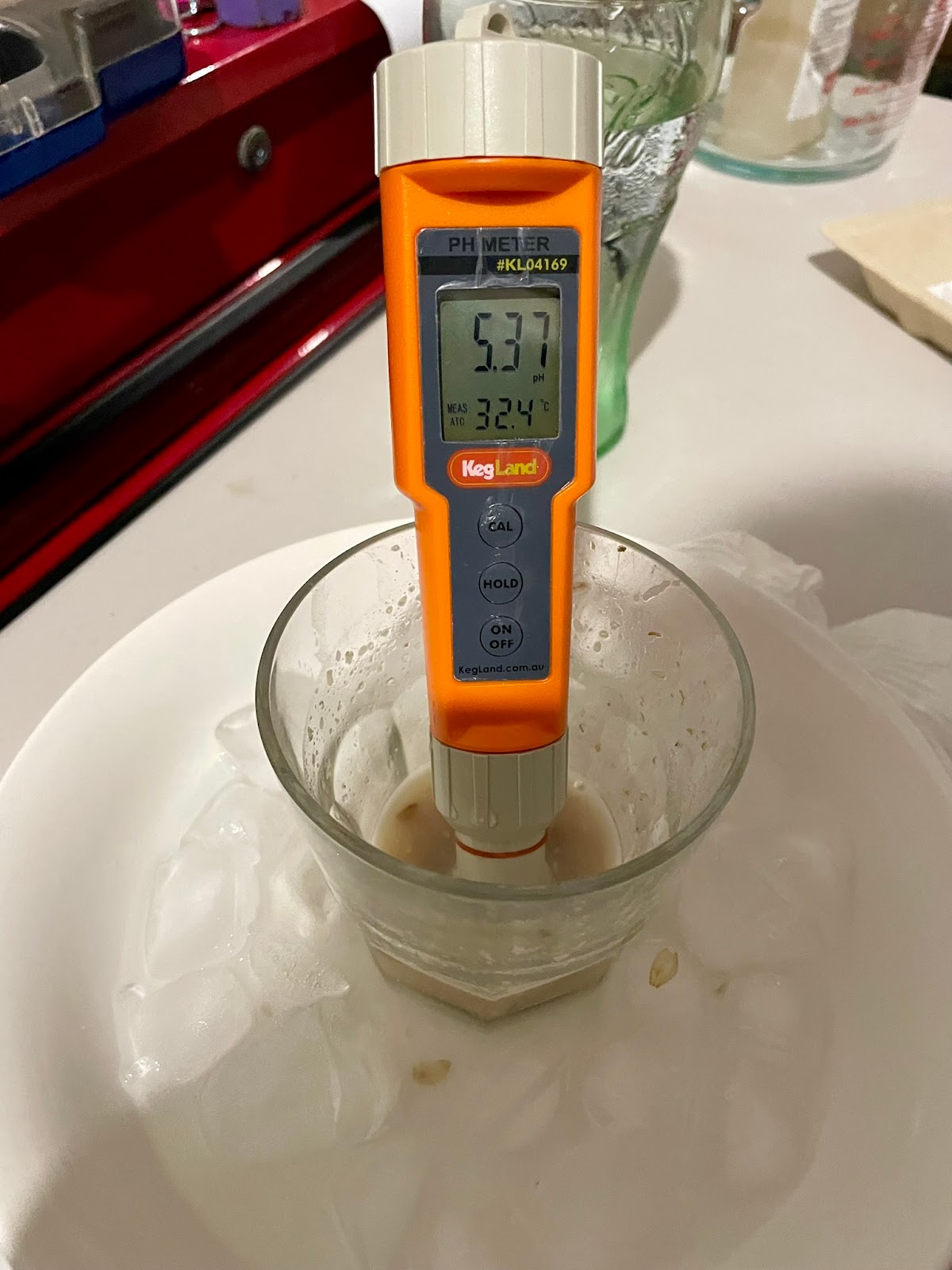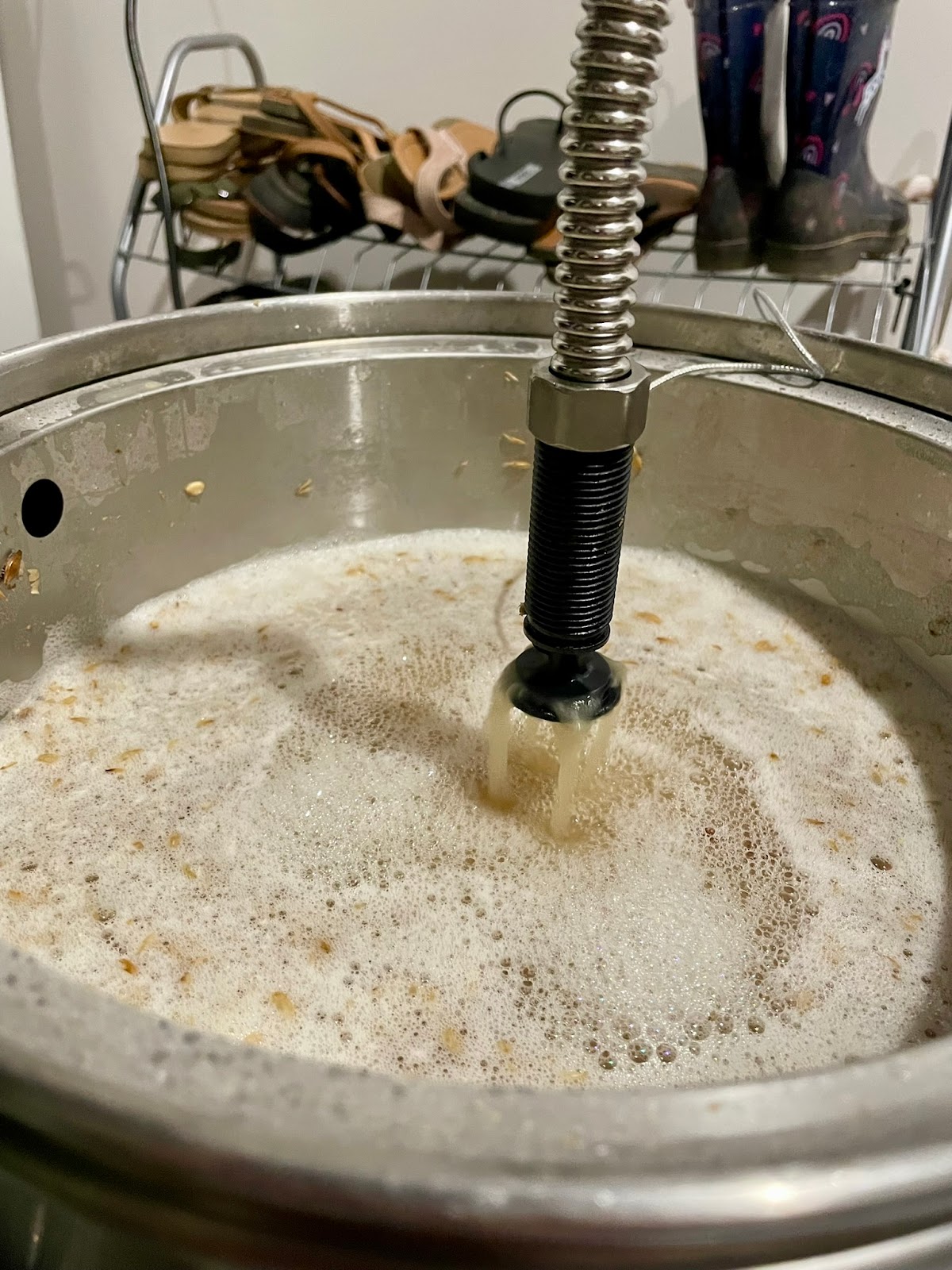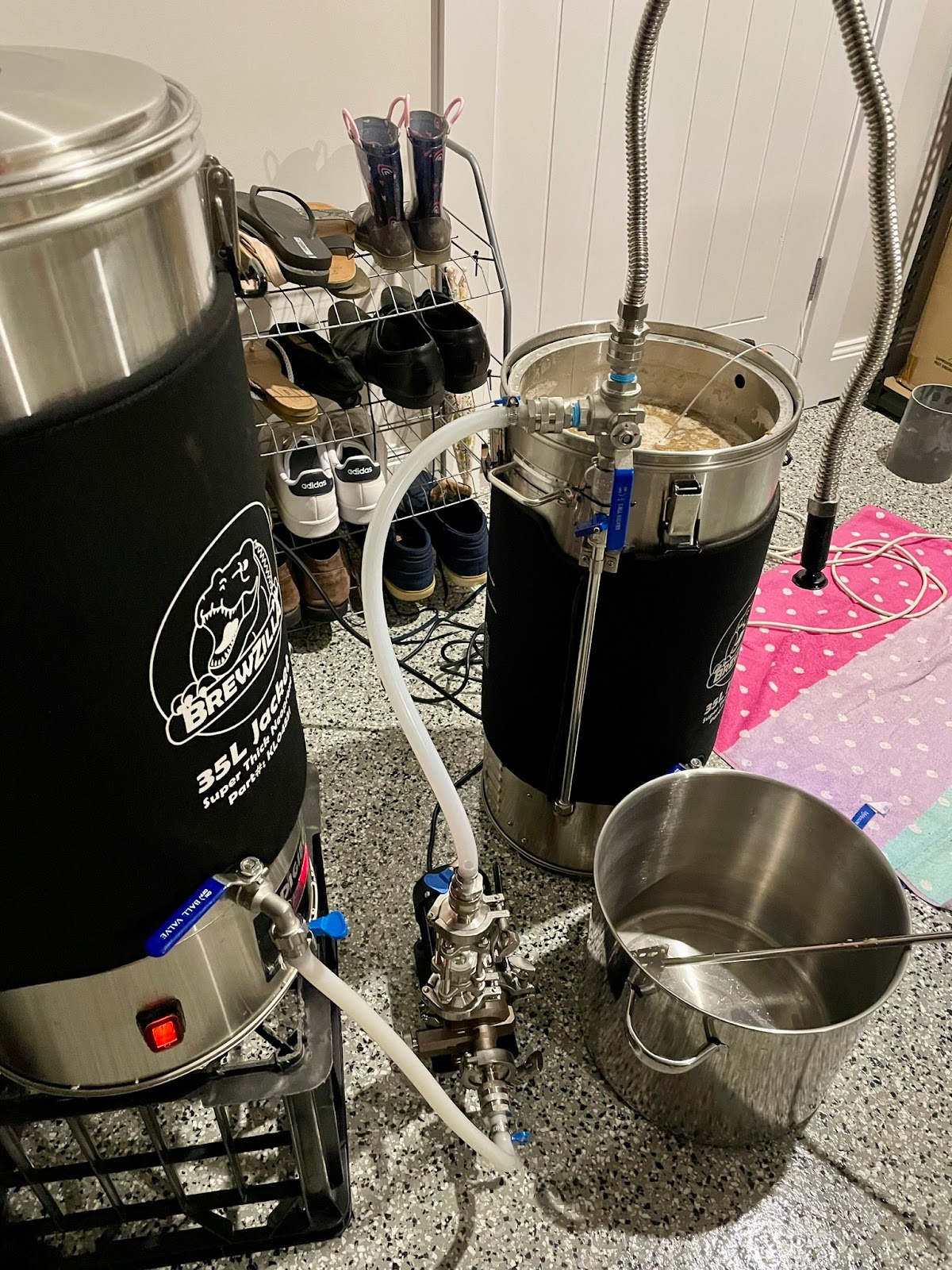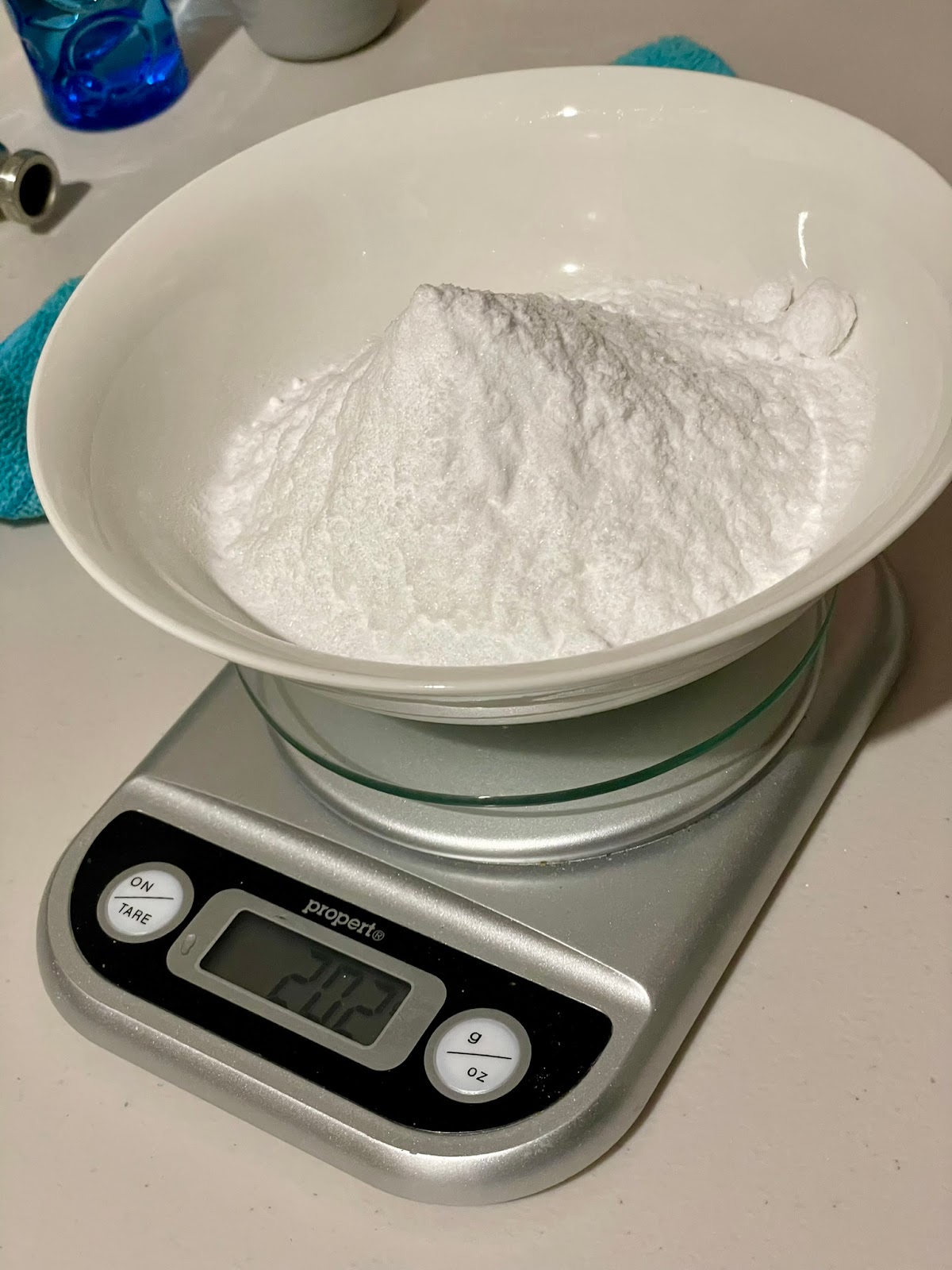Here's a rundown from our latest brew day for our All Star Hazy Pale Ale.
Link to the recipe post is here
As always, we started off with our water adjustments. The water profile for this particular beer is chloride heavy with no sulfate additions so we didn't need calcium sulfate this time around but calcium chloride sure got a look in
It was also another opportunity for us to try out our new integrated sparge water sprinkling setup - it didn't work so well last time we used it, but we've got a plan!
To help create a slightly less fermentable wort, so we have a high final gravity (FG), we're mashing at a fairly high 68°C, calling for a higher than normal strike water temperature of 71°C. Loving our RAPT temperature probe to help get more accurate temperature measurement from the centre of the BrewZilla.
We mashed in and left the grain bed to settle for 10 minutes before taking our mash pH reading. 5.37 is right where we want to be - on the lower end of the accepted range of 5.2 - 5.7. Starting lower will hopefully lead us to finish lower, which will come in handy with a fairly large dry hop later on that will inevitably bump up the final pH.
We had some difficulties with our sparge water pH - after our initially calculated pH adjustment was made using phosphoric acid, we had a pH reading well into the 4's - way too low and acidic so we had to add some more filtered tap water to raise it back up again (as we don't have any suitable minerals on hand to adjust this otherwise). After adding another 5-6L of water we got the pH back to around 5.29. I suspect we need a more accurate dosing device for measuring the relatively small acid addition required here. Every 0.1mL seems to make a big difference to the pH and made for a mad scramble trying to rectify this whilst tending to the mash.
We then began recirculating the wort. Recirculation was fairly slow which is expected as we have a fair amount of oats in the grain bill which can lead to a thicker, stickier mash
We managed to maintain a fairly stable mash temp of around 68°C for the duration of the mash
A closeup of the wort really starting to take on a nice, light colour
Towards the end of the mash it dawned on us that sparging was going to be a nightmare because of the slow recirculation so we decided to quickly throw in a few handfuls of rice hulls that we had spare/laying around
Raising the temperature for mash out seemed to take an eternity, but we got there eventually and got everything ready to use our sparge recirculation setup with our Spike Flow pump
During our last brew day when we tried this for the first time, we had the flow going way too fast through the sparge head and recirculation arm, leading to sparge water going down the outside of the grain bed resulting in a massive drop to efficiency. We addressed this for this brew by utilising the top screen to help distribute the water more evenly over the grain bed. This certainly helped, but as we predicted the flow of sparge water back through the grain bed was incredibly slow and took a lot of coaxing to get through in the end with plenty of stopping and stirring the mash required to get the sparge water through!
After sparging we hit our pre-boil volume of 26.5L and began waiting for a boil to be reached
Our pre-boil gravity reading was a little low at 1.044 - 8 points lower than predicted by our recipe. A bit disappointing but not completely unusual given the large amount of oats (which can reduce efficiency). We'll recalculate and add some dextrose to help supplement and boost the starting gravity for fermentation.
As we were reaching a boil there was a lot of hot break - we're usually pretty diligent with watching it when it comes to a boil but this was a reminder to not get complacent - if we'd left it unattended we definitely would have had a messy boil over on our hands (and garage floor). There was a good 5-10 minutes of stirring and monitoring the super foamy hot break.
We didn't have any hop additions to worry about during our 30 minute boil (as all "boil" hops are added at the whirlpool at the completion of the boil), so we used the time to measure out some dextrose to add with 10 minutes left.
After adding the dextrose to the boil, we then measured out our whirlpool hop additions. We ended up substituting the galaxy hops for melba as our local homebrew shop ran out of stock of galaxy.
At the end of the 30 minute boil period we chilled the wort down using our immersion chiller to around 80°C and added our whirlpool hops. We also began recirculating the wort using our whirlpool arm attachment - the colour at this point looked amazing.
After the whirlpool period had elapsed we continued to chill the wort down before transferring to our fermenter. We've been chilling to around 30°C before transferring, then leaving the wort in the fermenter in our fridge overnight to cool down further to pitching temperature before adding the yeast the next morning.
Our starting gravity was 1.051, only 1 point lower than the planned starting gravity of 1.052 from the recipe.
Fermentation completed within a matter of days - and interestingly didn't require as long to condition as previous batches. We suspect this is because we pitched 2 packets of yeast (we normally use one) - but on this occassion used two as the first packet we purchased expired several months ago so we used another packet to be safe. We expect the extra yeast cells lead to a healthier fermentation with less off flavours developed.
Final gravity was 1.014, giving us a total ABV of 4.9%

























.png)

No comments:
Post a Comment